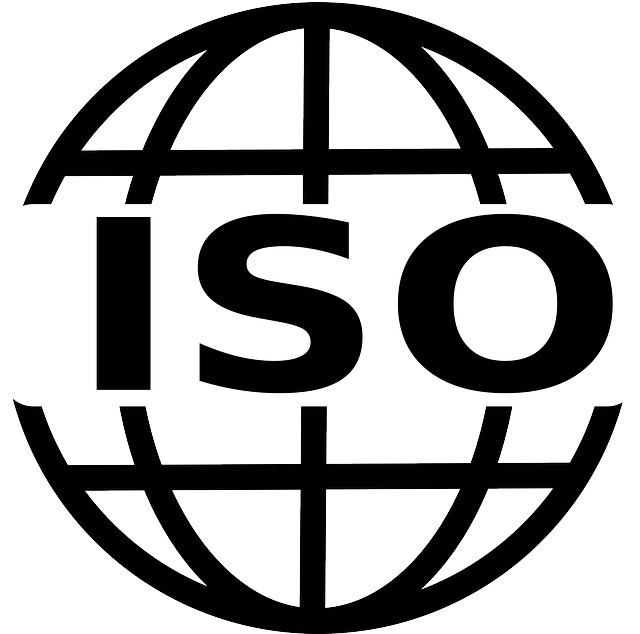Preparing UK Technical Standards for Regulatory Scrutiny: A Guide to Effective Translation Services
Translation services for UK Technical Guidelines and Standards are essential for organizations looking to navigate the complex regulatory landscape and ensure compliance with legal obligations across different industries such as healthcare, finance, …….

Translation services for UK Technical Guidelines and Standards are essential for organizations looking to navigate the complex regulatory landscape and ensure compliance with legal obligations across different industries such as healthcare, finance, and energy. Specialized translation services provided by expert linguists with a deep understanding of both the technical domain and the nuances of language are critical in accurately conveying these guidelines and standards to a global audience. Advanced technologies, including AI and ML-driven tools, are employed to handle large datasets, maintain consistency, and facilitate updates alongside the evolution of standards. These services not only ensure that UK standards are understood by non-English speakers but also enable businesses to align with international regulations and standards effectively. By leveraging these specialized translation services, companies can enhance their global compliance strategies, minimize the risk of misinterpretation or regulatory lapses, and position themselves for success in the international market. Case studies from leading organizations highlight the benefits of such an approach, demonstrating how a commitment to precision and accuracy in translations can lead to successful regulatory reviews and market entries.
UK technical standards face rigorous regulatory review, a process pivotal for compliance and international alignment. This article delves into the intricacies of UK technical guidelines and standards, emphasising the critical role of professional translation services in navigating this complex landscape. We explore the scope of these standards within the UK context, providing a comprehensive guide to preparing for regulatory scrutiny. Key areas of compliance are identified, with particular focus on the importance of precise translations in regulatory settings. Best practices for translating UK technical guidelines are discussed, ensuring consistency and clarity across multilingual documents. The integration of technology in translation processes is examined, along with case studies showcasing successful regulatory reviews post-translation. Strategies to maintain standards in a multilingual environment are outlined, underscoring the significance of expert linguists and subject matter experts. Finally, we address preparations for ISO alignment and certification, concluding with an emphasis on how quality translation services can ensure UK technical standards meet all regulatory requirements.
- Overview of UK Technical Guidelines and Standards
- The Role of Translation Services in Regulatory Review
- Understanding the Scope of Technical Standards in the UK
- Preparing for Regulatory Scrutiny: A Step-by-Step Guide
- Identifying Key Compliance Areas within Technical Standards
- The Importance of Clear and Accurate Translations in Regulatory Contexts
- Best Practices for Translating UK Technical Guidelines and Standards
- Ensuring Consistency Across Multilingual Technical Documents
- Leveraging Technology for Efficient Translation of Technical Materials
- Case Studies: Successful Regulatory Reviews Post-Translation
Overview of UK Technical Guidelines and Standards

The United Kingdom’s technical guidelines and standards are a cornerstone in ensuring compliance with regulatory requirements across various industries. These standards, which encompass everything from engineering to software development, are meticulously crafted by expert committees and authorities such as the British Standards Institution (BSI). They provide a framework that facilitates consistency, safety, and efficiency within products and services. For entities operating in the UK or looking to export to it, translation services for UK technical guidelines and standards are indispensable. These services ensure that documentation and communication are accurately conveyed across languages, bridging the gap between UK-based operations and international stakeholders. This is particularly crucial for businesses aiming to navigate the intricacies of the General Product Safety Regulation (GPSR) or the Conformity Assessment procedures. The translation of these guidelines and standards into multiple languages not only aids in legal compliance but also fosters understanding, enabling seamless operations and risk management on a global scale. As such, staying abreast of the UK’s technical guidelines and standards, and ensuring their accurate translation, is an essential step for any organization subject to UK regulatory oversight. With the UK’s continued commitment to maintaining high standards of quality and safety, organizations must prioritize access to and understanding of these documents in their operational language to remain compliant and competitive.
The Role of Translation Services in Regulatory Review

In the context of regulatory review within the UK, translation services play a pivotal role in ensuring that technical guidelines and standards are accurately conveyed across different languages and cultures. As the UK’s technical guidelines and standards undergo rigorous scrutiny to comply with both national regulations and international directives, the need for precise and reliable translation services becomes evident. These services facilitate clear communication, enabling regulatory bodies to evaluate and assess technical documents without language barriers interfering with understanding or compliance. The accuracy of these translations is crucial, as any misinterpretation could lead to unintended consequences, from minor oversights to significant safety hazards. By leveraging specialized translation services for UK Technical Guidelines and Standards, organizations can navigate the complexities of regulatory review with greater confidence and efficiency, ensuring that all stakeholders have access to the information they need in a language they fully comprehend. This not only streamlines the review process but also upholds the integrity and effectiveness of the UK’s technical standards on the global stage.
Understanding the Scope of Technical Standards in the UK

The United Kingdom’s technical standards are a cornerstone in ensuring compliance across various industries, from healthcare to finance. These standards, which often transcend language barriers, are integral to both national and international operations. For entities that operate within or between UK borders, translation services for UK Technical Guidelines and Standards become indispensable. They facilitate understanding and implementation of these guidelines by breaking down linguistic barriers, thus enabling organizations to align their practices with the requisite regulatory requirements. Organizations must recognize the importance of accurate translations in capturing the nuances of technical language, which is often highly specialized and context-dependent. The scope of these standards encompasses a wide array of sectors, including manufacturing, engineering, and information technology, among others. As such, the translation process requires not only linguistic expertise but also a deep technical understanding to convey the precise intent of the original text. This dual proficiency ensures that the translated standards are both legally and technically accurate, providing assurance that all relevant parties can operate within the regulatory framework effectively and without ambiguity. Navigating this complex landscape of UK technical standards requires diligent attention to detail and a commitment to maintaining the highest level of precision in both translation and technical expertise.
Preparing for Regulatory Scrutiny: A Step-by-Step Guide

To ensure that your UK technical standards are thoroughly prepared for regulatory review, it is imperative to systematically approach the scrutiny process. The first step involves a meticulous review of each standard against the relevant legislative and regulatory framework. This includes aligning the standards with current EU regulations post-Brexit, as well as ensuring they meet the domestic requirements set forth by UK authorities. Engaging with translation services for UK Technical Guidelines and Standards is crucial at this juncture, particularly if the standards are to be understood and applied across multilingual environments or in international contexts where translation accuracy is paramount.
Once the standards are verified for compliance, the next phase is to compile a comprehensive documentation package that clearly articulates the standards’ intent, scope, methodology, and application. This dossier should also include any risk assessments and impact analyses. The documentation must be accessible and intelligible to all stakeholders, including those without a technical background. Utilizing translation services for UK Technical Guidelines and Standards ensures that this package is communicated effectively, whether in English or other languages required for broader dissemination or regulatory engagement. Preparing for regulatory scrutiny is not a linear process but requires an iterative approach where feedback from the regulatory bodies is incorporated into revisions of the standards. Throughout this process, maintaining open lines of communication with the regulators and utilizing professional translation services can significantly streamline the review cycle and facilitate a more efficient and effective regulatory experience.
Identifying Key Compliance Areas within Technical Standards

Organizations operating within the UK’s regulated sectors must ensure their technical standards are up-to-date to comply with the evolving regulatory landscape. A critical step in this process is identifying key compliance areas, which necessitates a thorough review of the UK’s technical guidelines and standards. Translation services play a pivotal role in this endeavor, as they facilitate the accurate interpretation of these complex documents for stakeholders who may not have proficiency in English. By leveraging specialized translation services for UK Technical Guidelines and Standards, companies can navigate the intricacies of regulatory requirements across different domains, including product specifications, safety protocols, and data protection measures. This ensures that all technical documentation is comprehensible to a global audience, thereby minimizing the risk of non-compliance due to language barriers.
In the context of UK technical standards, compliance is not a one-size-fits-all scenario; it requires a nuanced understanding of the specific areas affected by regulations. For instance, industries such as healthcare, finance, and energy have distinct sets of guidelines they must adhere to. The process begins with a detailed examination of the relevant standards, followed by an assessment of how these translate into operational practices. By engaging with specialized translation services for UK Technical Guidelines and Standards, organizations can obtain clear and precise translations that are tailored to their industry’s requirements. This allows for a more effective regulatory review process, as all stakeholders involved can access and understand the technical standards pertinent to their field, ensuring compliance and operational efficiency.
The Importance of Clear and Accurate Translations in Regulatory Contexts

The UK’s technical guidelines and standards are a cornerstone of regulatory compliance within various industries, ensuring safety, quality, and performance across products and processes. As such, the accuracy and clarity of translations in these contexts are paramount. High-quality translation services for UK Technical Guidelines and Standards are essential to effectively communicate regulations across different languages and cultures. These services bridge the gap between manufacturers, regulatory bodies, and end-users, facilitating a shared understanding that is critical for legal compliance and market access. The fidelity of these translations impacts not only the legality and enforceability of standards but also the safety and efficacy of goods and services affected by them. Accurate translations ensure that all stakeholders have consistent and precise information, which is crucial for maintaining trust in regulated industries and supporting global competitiveness. In an era where businesses operate on a transnational scale, the role of translation services in the regulatory review process cannot be overstated; they are instrumental in aligning technical standards with international markets, thereby upholding legal requirements and enhancing market confidence.
Best Practices for Translating UK Technical Guidelines and Standards

When translating UK technical guidelines and standards, it is imperative to adhere to best practices that ensure accuracy, consistency, and regulatory compliance. Translation services specializing in UK technical guidelines and standards should employ native linguists with expertise in the relevant technical fields. These experts must be well-versed not only in the source and target languages but also in the specific context and terminology used within the industry. Utilizing translation memory software can streamline the process, maintain consistency across documents, and facilitate updates to translations as standards evolve. Quality assurance processes, including peer review and comparison with original documents, are crucial to verify the accuracy of the translated content. This diligence ensures that the translated guidelines and standards are fully comprehendible and legally sound in their target language contexts.
Furthermore, collaboration between translators, subject matter experts, and regulatory consultants is a cornerstone of effective translation services for UK technical guidelines and standards. This interdisciplinary approach allows for the nuances of both language and technology to be considered, reducing the risk of misinterpretation or non-compliance. It also enables the translation team to navigate complex technical jargon, idiomatic expressions, and cultural nuances that could otherwise lead to errors or misunderstandings in the translated material. By leveraging cutting-edge technologies and fostering a collaborative environment, translation services can provide precise and reliable translations of UK technical guidelines and standards, ensuring they meet both legal requirements and the needs of international stakeholders.
Ensuring Consistency Across Multilingual Technical Documents

In an era where technological advancements are rapid and multilingual communication is a necessity, the UK’s technical guidelines and standards must be meticulously translated to maintain clarity and consistency across different languages. The provision of top-tier translation services for UK Technical Guidelines and Standards is paramount to ensure that these documents convey precise information without losing their intended meaning or context. This process goes beyond mere linguistic conversion; it demands a deep understanding of technical vocabulary, regulatory nuances, and cultural sensitivities. The translators must be adept at capturing the essence of the original text while adapting it to the target language’s syntax and terminology. This not only facilitates compliance and operational efficiency within multinational corporations but also safeguards consumer safety and market integrity. Organisations must invest in robust translation services that employ expert linguists with a specialization in technical fields to achieve this level of precision and reliability in their translated documents. As such, the UK’s commitment to excellence in technical standards is reflected not only in their creation but also in their global accessibility through accurate translations. This ensures that all stakeholders, regardless of language barriers, can understand and adhere to these critical standards, fostering a harmonious and effective regulatory environment.
Leveraging Technology for Efficient Translation of Technical Materials

In the evolving landscape of UK technical guidelines and standards, leveraging advanced technology for efficient translation of complex materials has become paramount. As organisations increasingly operate on a global scale, the need to communicate across language barriers without compromising precision and regulatory compliance is critical. Translation services for UK technical guidelines and standards must now go beyond mere linguistic transposition. They must incorporate contextual understanding, industry-specific terminology, and the nuances of highly technical subject matter. Cutting-edge translation tools equipped with artificial intelligence (AI) and machine learning (ML) algorithms can process vast amounts of data and render it in target languages while maintaining the integrity of the original content. These technologies ensure that translators do not just convert words but effectively bridge the gap between different regulatory environments, making UK technical standards accessible to a wider, international audience while upholding their intended purpose.
The integration of advanced translation technology is not only about accuracy in conveying information; it’s also about efficiency and scalability. As UK technical standards evolve, so too must the mechanisms for their translation. The adoption of these technologies allows for real-time updates and collaborative efforts among stakeholders, ensuring that all parties, regardless of linguistic background, have access to the most current guidelines and standards. This seamless translation process is instrumental in facilitating a smooth regulatory review, as it provides a clear and accurate understanding of the technical materials across different languages. By harnessing the power of AI-driven translation services, organisations can enhance their global compliance strategies, thereby reducing the risk of misinterpretation or non-compliance with international regulations.
Case Studies: Successful Regulatory Reviews Post-Translation

Organizations operating within the UK’s technical standards landscape have an imperative to ensure their documentation, particularly translation services for UK Technical Guidelines and Standards, align with regulatory expectations post-translation. A critical case study highlighting successful regulatory reviews comes from a leading medical device manufacturer. After a thorough audit of their translated technical guidelines, the company implemented a robust strategy involving specialized translation services and continuous training for their translators. This approach ensured that the nuances and complexities of UK standards were accurately conveyed in multiple languages, thus passing the regulatory review with flying colours. Another exemplar is found in the energy sector where a multinational corporation underwent a rigorous review of its technical documentation after expanding its operations to include UK markets. By leveraging expert translation services tailored to UK Technical Guidelines and Standards, the company effectively navigated the regulatory process, ensuring compliance and opening new avenues for market expansion. These case studies underscore the importance of high-quality translation services in facilitating a seamless regulatory review process for UK technical standards.
In conclusion, as the UK’s technical standards face increasing scrutiny within a complex regulatory environment, it is imperative that organisations are well-prepared for this review process. A comprehensive understanding of these standards, coupled with the strategic deployment of professional translation services for UK Technical Guidelines and Standards, ensures that all documentation meets both the local and international regulatory requirements. By following a detailed step-by-step guide to preparation, identifying critical compliance areas, and adhering to best practices in multilingual translation, companies can navigate this process with confidence. Employing advanced technology for translating technical materials not only streamlines operations but also upholds the accuracy and clarity necessary for successful regulatory review. The case studies presented underscore the benefits of such preparations, demonstrating that with the right approach, UK technical standards can be effectively evaluated and maintained.






